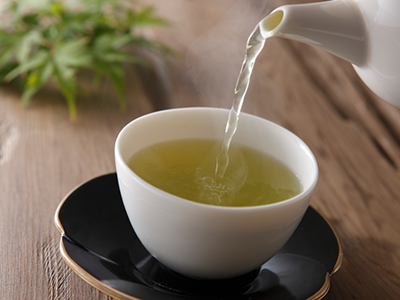 Counteract all of that long weekend celebrating with some oolong tea and your waistline will thank you. Here’s how the nutrients in the tea work in your favor.
Counteract all of that long weekend celebrating with some oolong tea and your waistline will thank you. Here’s how the nutrients in the tea work in your favor.
A number of nutrients reduce the amount of fat we absorb from what we eat. For example, drinking oolong tea—a form of green tea—with a high-fat meal significantly lowers fat absorption. One study showed that the amount of total lipids and cholesterol remaining in the fecal mass of subjects increased by 52 percent after drinking 3 cups of oolong tea with each meal per day. The healthy components of green tea are called catechins, which are powerful antioxidants. Green tea contains many catechins, although epigallocatechin gallate seems to be responsible for the greatest lipid absorption effect. Epigallocatechin gallate suppresses the uptake of lipids in the small intestine and is also effective at lowering the absorption of cholesterol.
It has also been found that green tea impedes the absorption of organic pollutants, which humans can easily absorb. This leads to high levels of tissue toxicity and makes it hard to lose fat. For example, eating trans fats and oxidized and polyunsaturated vegetable oils results in increased accumulation of free radicals in our bodies. Free radicals are atoms with an odd number of electrons and are typically created when oxygen interacts with other molecules. Free radicals cause damage by reacting with the DNA inside our cells, resulting in cell death and disease. Antioxidants can prevent the negative effects of free radicals by terminating their ability to damage cells. To help the body produce enough antioxidants, a diet containing vitamins such as beta-carotene, vitamin C, and vitamin E is necessary.
Eating fruits and plants containing insect pesticides can also allow toxins to build up in adipose cells. The accumulated toxins can be released when stimulated, which has been shown to slow fat loss and therefore may make people fat. Green tea prevents absorption of organic pollutants, so people who regularly drink green tea may experience more fat loss by reducing fat absorption in the meals they eat and by decreasing the toxic effect of organic pollutants.









